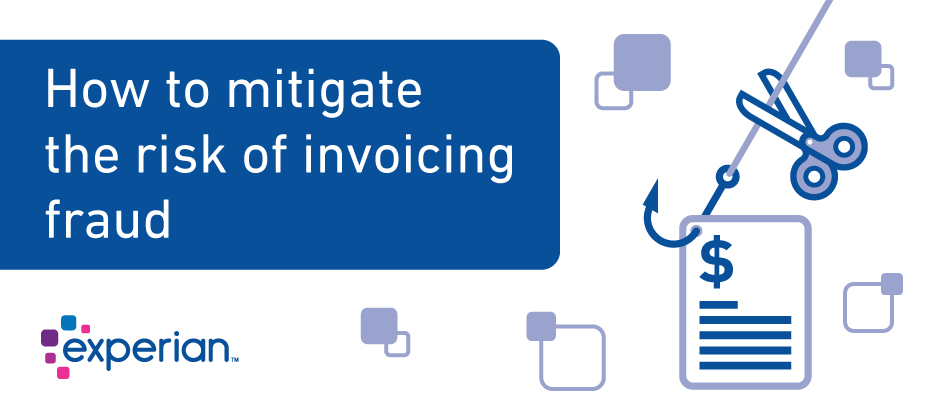Paying an invoice without carefully reviewing the company and invoice can cost your business more than just the amount paid. Invoicing fraud is when a third party sends a false invoice to an organization or business. In some cases, the invoice is for services or products that were never purchased or delivered. Other times, fraudsters send a bill with inflated pricing or a duplicate bill.
Paying just a single fraudulent invoice can set your company up for being a victim of larger fraud down the line. Often, criminals send a small invoice for a common product, such as office supplies, to test the company’s process to see if they will pay the false invoice. If the business pays the invoice, the criminals know that the company does not carefully review and research the invoices they receive. Criminals then send additional invoices to the company to continue the fraud. Julie Johnson, Research Specialist at Association of Certified Fraud Examiners (ACFE) says that invoicing fraud appears to be on the rise. “The rise in technology offers fraudsters new and creative ways to commit invoice fraud as well as more options to hide their tracks,” says Johnson.
According to a Lloyds Bank survey, 52 percent of respondents have experienced invoiced fraud, with law firms, HR companies, and IT businesses being most at risk. The survey also found that only 20 percent of the companies reviewed their invoices, and 37 percent do not have a process to prevent invoice fraud.
Johnson says that in her experience, small businesses are most at risk for becoming victims to invoice fraud. “SMBs are often targeted because they typically don’t have the same set of resources as larger companies. They also may not have a procurement process to determine figures and track invoices,” says Johnson.
Red flags to help spot invoice fraud before you pay
While fraudulent invoices often look similar in format, and even in name, to legitimate invoices, many fraudulent invoices contain warning signs. When processing invoices, keep an eye out for the following red flags:
- Business directory invoices – Many fraudsters send a fake invoice to a company or individual employee about a business directory renewal. Johnson said that criminals with this particular scam often become aggressive and contact the company demanding to be paid.
- Web domain renewals – Johnson says that another common fraud is invoicing for web domain renewals. These invoices typically come from a different company than the one that sent previous renewal notices but may have an official or similar sounding name.
- More frequent bills – Be aware of how often bills arrive for specific products and services. Johnson has found that fraudsters will send a bill for a product more often than the legitimate company. For example, if you pay your printer rental fee once a month, but receive two bills in March, then you should contact the company before paying.
- No purchase order – Real invoices almost always contain the corresponding purchase order. However, many fraudulent invoices do not include a purchase number.
Preventing invoice fraud
Because it is challenging to catch fraudsters and recover money paid, the best strategy is to incorporate safeguards into your invoice payment process. Here are four things you can do to prevent becoming a victim of invoice fraud:
- Verify the company name on each invoice — Fraudsters often use company names similar to those of reputable companies. If you are not familiar with the company, do a Google search. Johnson says that if there is no internet information on a company, that’s a good indicator that something is not right.
- Compare the receipt of goods and purchase order with the invoice — Since fraudsters send invoices for goods you never received, you will not have a receipt of goods for fraudulent invoices.
- Check the payable address for each invoice — Another scheme is for a fraudster to send a bill with the name of a company you do business with but use a different payable address. Instead of sending your payment to the legitimate company, you pay the fraudster. Even worse than the fact that you lost money, you likely still owe your legitimate vendor.
- Use Experian BizID for Verification — Experian customers can do a business verification using the BizID to verify the address and phone number matches what is on file with Experian. Performing verification using BizID can also check if the address is potentially vacant or if it is a residential address; both should be considered red flags. You can also do reverse-looks up using the address and phone to see if there are multiple businesses at both data points is another check to consider.
If you determine that you have received a fraudulent invoice, Johnson says to remember that you are not legally obligated to pay for goods or services that you did not order. “If you receive harassing calls from companies about fraudulent invoices, they have no legal action against you,” says Johnson. “After verifying that it’s not a legitimate invoice, do not pay the invoice.”
By taking steps to catch and prevent invoice fraud, your company can reduce its chances of becoming a victim.

